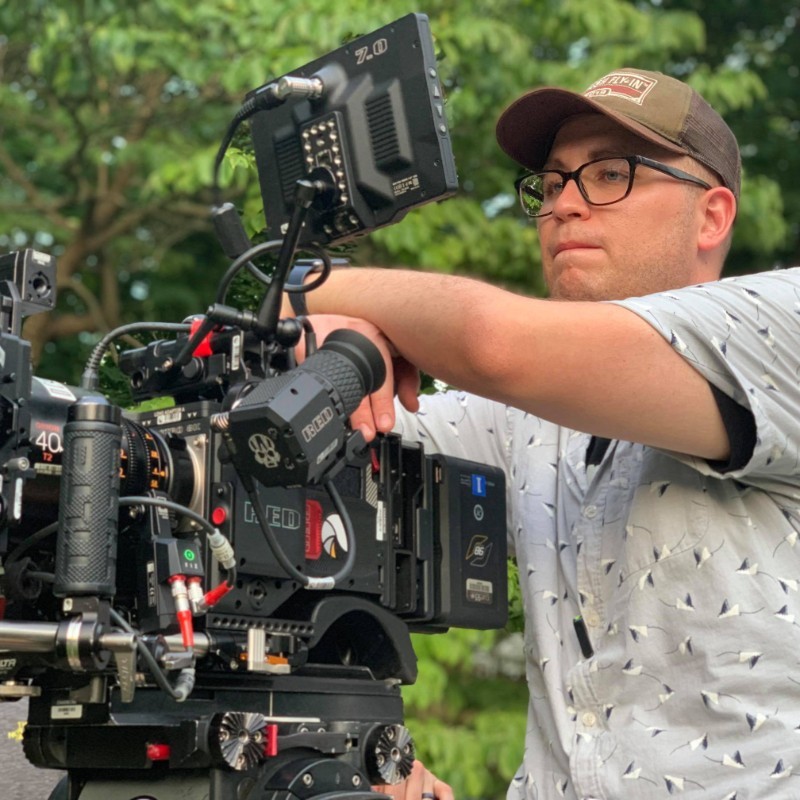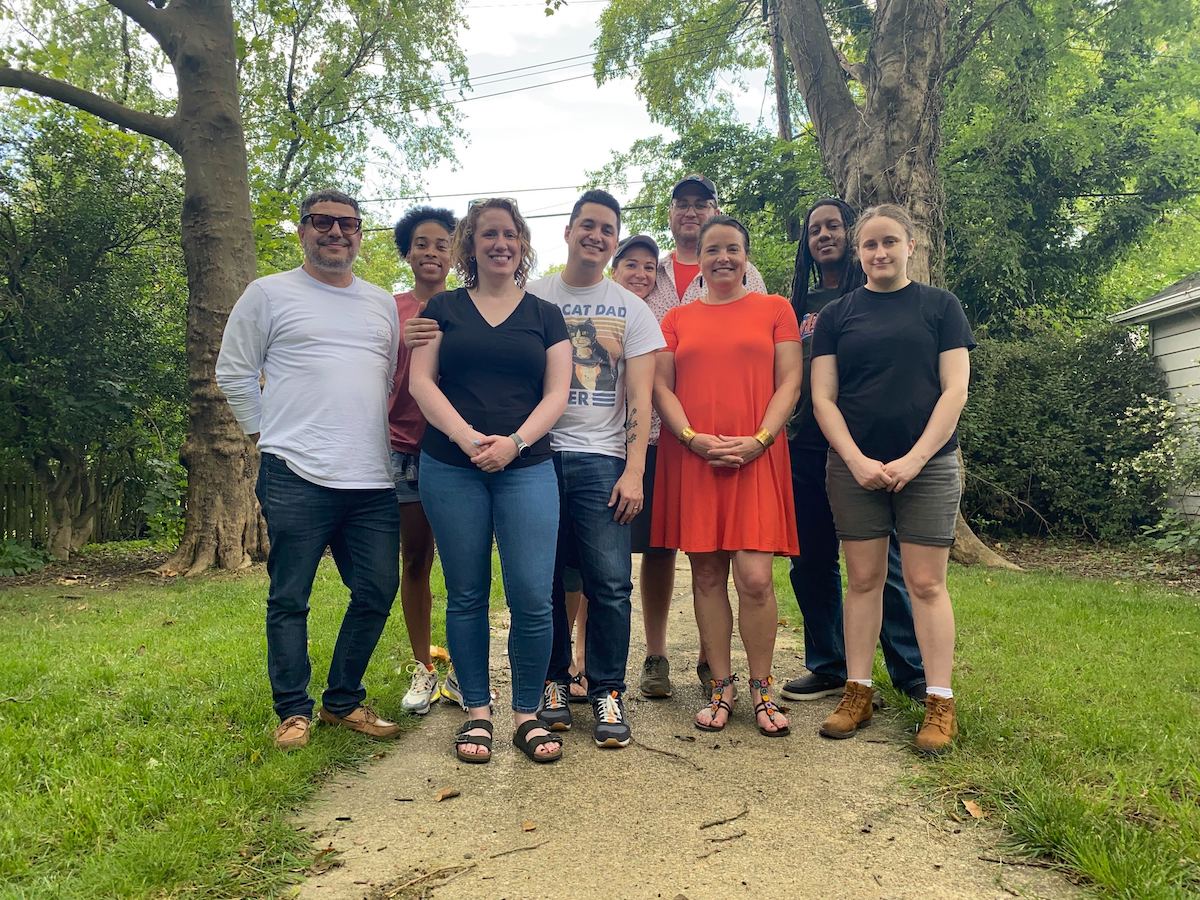This is a story of Baltimore, and staying apart and together at the same time.
The first meeting I had in Baltimore was a few weeks before Christmas in 2008. I was meeting with the VP of ETC, Neil Davis, to talk about how my company could maybe move in at the start of the year. I remember it was raining and dark, and I wore a leather jacket because I thought that would make me look cooler. And maybe it would hide the fact that I had asked my mom to drive as I wasn’t comfortable doing so in the city yet. So while she grocery shopped for a holiday party, my career in Baltimore began.
Ever since then I’ve spent my entire professional life north of the Baltimore Harbor Tunnel — jobs, other companies like the one I met with Neil about, and now Kapowza. Kapowza started in the ETC and, in fact, Kapowza’s first clients were from the ETC, including the ETC itself.
Simply put: Kapowza would not exist without Baltimore. That’s why we focus on working with as many Baltimore brands as we can.
In mid-march of 2020, I closed the door to my office in the Natty Boh Tower — the most Baltimore office we could find — and started doing some research on a virus I had only been hearing about in the news. I had heard from friends out west that things weren’t looking good, that they were two weeks ahead of where we would be. Italy was on the verge of collapse and people weren’t sure what was going to happen. A few of our team members had brought up the idea of working from home. I wanted to make sure I understood it enough to make a decision.
What I read scared me. It seemed to move so fast, and we knew so little about it. The only thing we could do to protect ourselves was hunker down, and ride it out. Turn our homes and apartments into makeshift doomsday bunkers. The next day, everyone loaded their computers into their cars, along with some stuff from their desks, ready to start working remotely. It would be the last time we were ever in the same office.
As a company that prides itself on collaboration, there’s just something so inauthentic about kickoffs and regroups on Zoom or Google Meet. But like everyone else, we had no choice but to get good at it fast.
After two years we have grown by every metric — something I would not have thought possible sitting in my office the year before. We have an LA office and a new production company and we still have an amazing team, having been lucky enough to not lose anyone to the Great Resignation. We’re closer than we’ve ever been but also geographically farther apart. Mostly it is in part, I think, because of the lessons we learned during the early days of COVID.
Flexibility and trust
We made it clear early on that if you need a day, you take a day. We created safe spaces for our team to be honest with us about what’s on their mind, how we can better support them while still getting work done. We were lucky because of who we surround ourselves with — a group of caring, kind, understanding people. All we had to do was reflect that back.
Sometimes your team won’t be there mentally and that’s OK. In times like these all you can do is support and understand. There were days where we could only get a few hours of work done and that had to be good enough. Dark days of social unrest, sickness, and worry became like a cloud outside our home office window. We instead turned our attention inward to focus on what made us feel good, each other.
Too often we forget that work doesn’t happen in a vacuum. Everyone has lives that affect and color the way we come to it and to each other. Trust your people. Trust that they’ll know what’s best for them, their mind, and their productivity. They see the same deadlines you do.
Embrace the differences
We still operate on East Coast time, still because that’s where the majority of the team is. Which means my staff meeting is at 7 a.m. and some client meetings have happened at 6 a.m. — a time too early to be meeting with everyone. But operating on a local schedule, even though I’m not local, goes a long way to still feeling local. It also makes more sense than shifting the entire company ahead three hours.
The benefit of this is I get some “quiet time” after 3 p.m.. Time for more coffee and any creative work. Even though I’m working the same hours I feel like I have an extra half to the day where I can focus.
Recommitment to our base
While some of us now live far outside of Baltimore, we’ll never stop being a Baltimore agency. We love this city and this community that has supported us from the beginning. The majority of our work is here, our families are here, our partners are here, and so are our clients.
Every time we get the opportunity to work with a client with Baltimore in the name we’re all excited — Baltimore Development Corporation, Bmore Tech Connect, Baltimore Office of Promotion & the Arts. We’ll never feel that excitement with any other city.
We’ve rethought what “local” means because it’s not about geography anymore, it’s about identity. Home is where the heart is, but it’s also where you identify. We’re just as close to people and communities thousands of miles away as we are to people feet away, sometimes more. Having moved across the country I’ve noticed very little difference in whom I’m connecting with regularly. The only thing that’s changed is the time zones and the weather — again, like miles, these are just numbers.
I write all this thousands of miles away sitting on a couch in Los Angeles, feeling more connected to Baltimore than I ever have. Feeling more local than I ever have because Baltimore came with me.
When I meet people out here, I may be the only person from Baltimore they’ll ever come across their whole life. I can change the narrative around our city, one conversation at a time. East Coast people look out for each other out here, and Baltimore people even more so. Back home if you say “I’m from Baltimore” nobody cares, but out here, people have questions.
Maybe my commute is just longer, but Los Angeles can be a Baltimore suburb, right?

This guest post is a part of What Local Means Now Month of Technical.ly's 2022 editorial calendar.
Before you go...
Please consider supporting Technical.ly to keep our independent journalism strong. Unlike most business-focused media outlets, we don’t have a paywall. Instead, we count on your personal and organizational support.
3 ways to support our work:- Contribute to the Journalism Fund. Charitable giving ensures our information remains free and accessible for residents to discover workforce programs and entrepreneurship pathways. This includes philanthropic grants and individual tax-deductible donations from readers like you.
- Use our Preferred Partners. Our directory of vetted providers offers high-quality recommendations for services our readers need, and each referral supports our journalism.
- Use our services. If you need entrepreneurs and tech leaders to buy your services, are seeking technologists to hire or want more professionals to know about your ecosystem, Technical.ly has the biggest and most engaged audience in the mid-Atlantic. We help companies tell their stories and answer big questions to meet and serve our community.
Join our growing Slack community
Join 5,000 tech professionals and entrepreneurs in our community Slack today!

The person charged in the UnitedHealthcare CEO shooting had a ton of tech connections

From rejection to innovation: How I built a tool to beat AI hiring algorithms at their own game

Where are the country’s most vibrant tech and startup communities?



